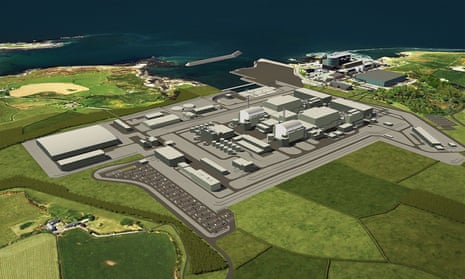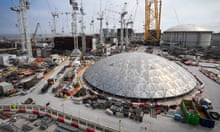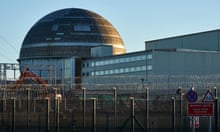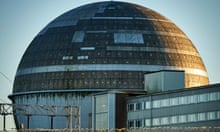The UK government has said it is working on making sites available for new nuclear power stations, amid reported talks with the owner of the Wylfa facility in north Wales.
Hitachi owns the site on the island of Anglesey or Ynys Môn, but its future has been uncertain since 2020, when the Japanese company formally abandoned its own effort to build a new reactor there after failing to agree financial support with the government.
The government is in early-stage discussions with Hitachi to acquire the land, with the intention of finding a partner to develop a nuclear power station there.
The government has in recent years committed to expanding nuclear power generation and launched Great British Nuclear, despite significant delays and enormous cost overruns on existing projects at Hinkley Point C in Somerset and Sizewell in Suffolk.
The government laid out plans in January for what it described as Britain’s biggest nuclear power expansion in 70 years, building reactors capable of producing 24 gigawatts of power by 2050. That would meet a quarter of the UK’s energy demand while producing zero carbon emissions.
Those plans will depend on moving forward nuclear projects on the relatively few sites deemed suitable for new reactors.
The Wylfa site has been valued at £200m, according to the Financial Times, which first reported the talks between Hitachi and GB Nuclear.
Wylfa is home to the last of the UK’s Magnox nuclear reactors, which closed in 2015, meaning it is deemed a suitable site for a large reactor or a small modular reactor (SMR). The government hopes SMRs will make nuclear power stations easier and cheaper to build.
Companies and institutions in the British nuclear industry said on Monday that they were launching a recruitment drive to ensure there were enough workers to sustain the government’s push.
The campaign, Destination Nuclear, said the number of employees needed to double in size over the next 20 years to support the possible quadrupling of output.
There are about 64,500 workers across the UK civil nuclear supply chain, plus thousands more in defence, according to the Nuclear Industry Association, a lobby group.
after newsletter promotion
It has support from the French state-owned energy company EDF, engineers such as Atkins, Jacobs and Laing O’Rourke, as well as companies involved in the UK’s nuclear weapons and submarines programmes including Babcock, Rolls-Royce and BAE Systems.
A spokesperson for the Department for Energy Security and Net Zero said: “We have ended the stop-start approach to nuclear and recently launched a roadmap setting out the biggest expansion of the sector in 70 years, simplifying regulation and shortening the process for building new power stations – meaning cleaner, cheaper and more secure energy in the long-term.
“Wylfa is one of a number of potential sites that could host civil nuclear projects. While no decisions on sites have yet been taken, we are working with Great British Nuclear to support access to potential sites for new nuclear projects.”
A Hitachi spokesperson said: “We own two of the premier locations for nuclear new-build in the UK and we will continue to speak with interested parties about the future for the sites.”










